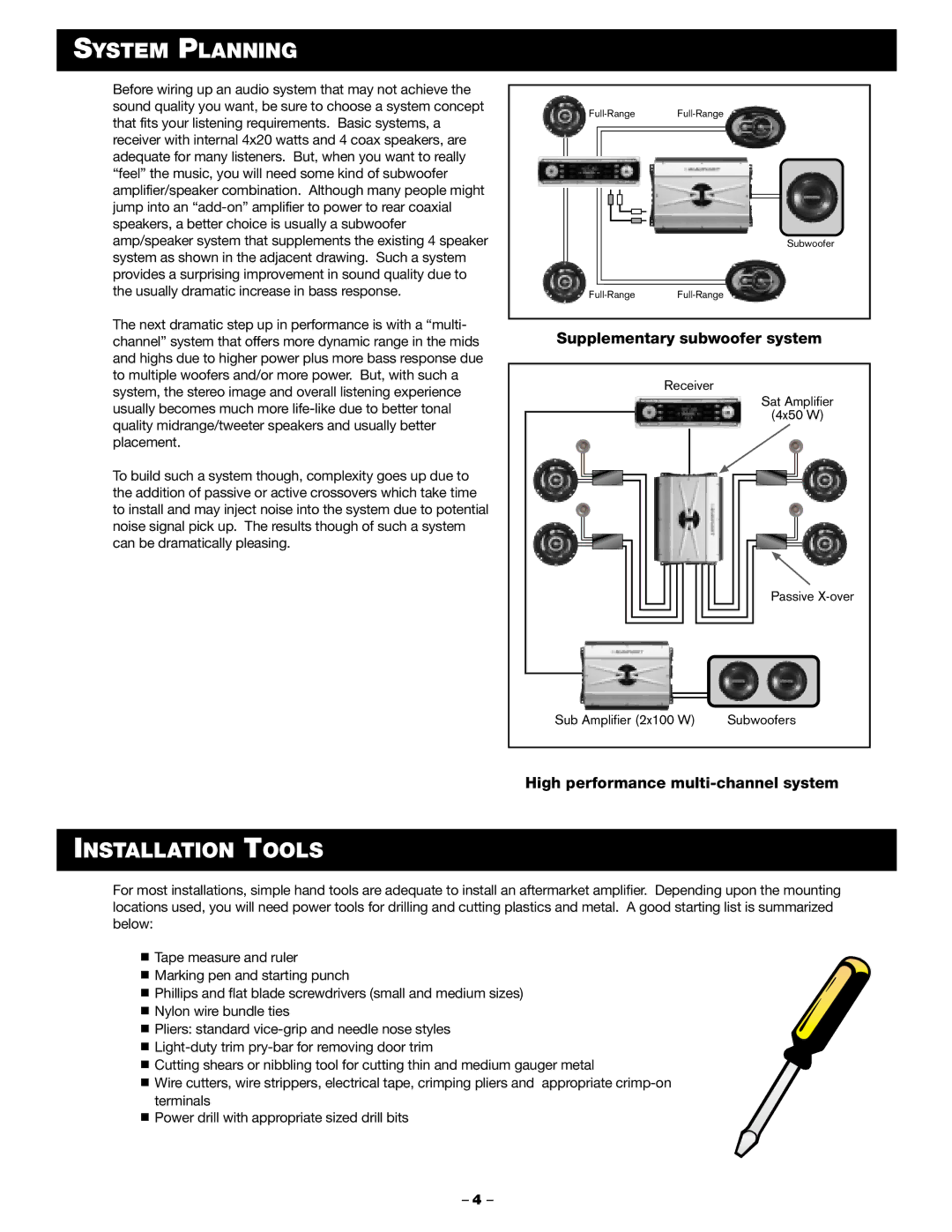
SYSTEM PLANNING
Before wiring up an audio system that may not achieve the sound quality you want, be sure to choose a system concept that fits your listening requirements. Basic systems, a receiver with internal 4x20 watts and 4 coax speakers, are adequate for many listeners. But, when you want to really “feel” the music, you will need some kind of subwoofer amplifier/speaker combination. Although many people might jump into an
The next dramatic step up in performance is with a “multi- channel” system that offers more dynamic range in the mids and highs due to higher power plus more bass response due to multiple woofers and/or more power. But, with such a system, the stereo image and overall listening experience usually becomes much more
To build such a system though, complexity goes up due to the addition of passive or active crossovers which take time to install and may inject noise into the system due to potential noise signal pick up. The results though of such a system can be dramatically pleasing.
Subwoofer
Supplementary subwoofer system
Receiver |
|
| Sat Amplifier |
| (4x50 W) |
| Passive |
Sub Amplifier (2x100 W) | Subwoofers |
High performance
INSTALLATION TOOLS
For most installations, simple hand tools are adequate to install an aftermarket amplifier. Depending upon the mounting locations used, you will need power tools for drilling and cutting plastics and metal. A good starting list is summarized below:
■ Tape measure and ruler
■ Marking pen and starting punch
■ Phillips and flat blade screwdrivers (small and medium sizes) ■ Nylon wire bundle ties
■ Pliers: standard
■ Cutting shears or nibbling tool for cutting thin and medium gauger metal
■ Wire cutters, wire strippers, electrical tape, crimping pliers and appropriate
■ Power drill with appropriate sized drill bits
– 4 –
